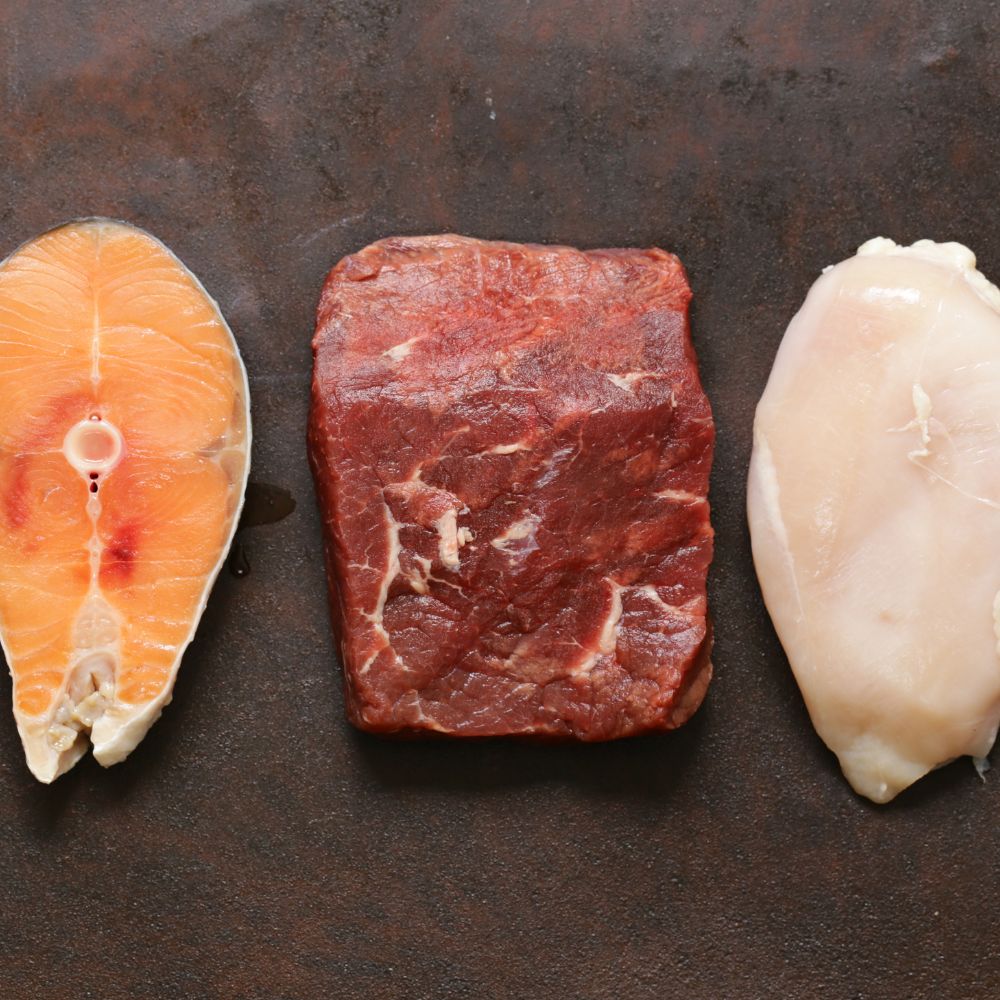Maintaining a healthy hormone balance is crucial for overall well-being, and diet plays a significant role in this process. For individuals looking to support their hormone health, especially when concerned about estrogen levels, choosing the right foods can make a difference. In this article, we’ll explore high-protein foods that are low in estrogen, foods to avoid, and how these choices can help support hormone balance.
Understanding Estrogen and Hormone Balance
Estrogen is a vital hormone in the body, involved in various functions, including regulating the menstrual cycle, supporting bone health, and influencing mood. However, excessive estrogen levels can lead to hormonal imbalances, which may contribute to issues such as weight gain, mood swings, and even increased risk of certain health conditions.
To support hormonal health, incorporating high-protein foods that have low estrogen levels can be beneficial. Here are some excellent options along with foods to avoid.
High-Protein Foods Low in Estrogen
1. Lean Meats
- Examples: Chicken breast, turkey, and lean cuts of beef or pork.
- Benefits: Lean meats are excellent sources of high-quality protein that can help maintain muscle mass and support metabolic health. They contain minimal estrogen and are versatile for various meals.
2. Fish and Seafood
- Examples: Salmon, tuna, cod, and shrimp.
- Benefits: Fish is rich in protein and omega-3 fatty acids, which can help reduce inflammation and promote heart health. Fatty fish like salmon also support brain health while having low estrogen levels.
3. Eggs
- Benefits: Eggs are a complete protein source, meaning they contain all essential amino acids. They are low in estrogen and provide important nutrients like vitamin D and choline, which support overall hormone health.
4. Legumes
- Examples: Lentils, chickpeas, and black beans.
- Benefits: While legumes contain some phytoestrogens, they are still a good source of plant-based protein and fiber, which can help maintain healthy digestion and blood sugar levels. Pairing them with low-estrogen foods can provide balanced nutrition.
5. Greek Yogurt and Cottage Cheese
- Benefits: Both Greek yogurt and cottage cheese are rich in protein and low in estrogen. They also contain probiotics, which support gut health, an essential factor in hormone balance. Choose plain varieties to avoid added sugars.
6. Tofu and Tempeh
- Benefits: While soy products like tofu and tempeh contain phytoestrogens, they can still be included in moderation as part of a balanced diet. They offer a high protein content and can be beneficial in regulating hormones when consumed mindfully.
7. Nuts and Seeds
- Examples: Almonds, walnuts, chia seeds, and pumpkin seeds.
- Benefits: Nuts and seeds are rich in healthy fats, fiber, and protein. They help regulate blood sugar levels and can contribute to hormone balance. Opt for unsalted and raw varieties to maximize their health benefits.
8. Quinoa
- Benefits: Quinoa is a complete protein source that’s gluten-free and rich in fiber. While it contains some phytoestrogens, it is generally considered low in estrogen. It can be a great addition to salads or as a base for various dishes.
Foods to Avoid for Hormone Balance
While incorporating high-protein, low-estrogen foods into your diet is important, avoiding certain foods can also help maintain hormone balance:
1. Processed Meats
- Examples: Bacon, sausages, and deli meats.
- Reasons to Avoid: These meats often contain preservatives and additives that can disrupt hormonal balance and may be linked to increased estrogen levels.
2. Dairy Products with Added Hormones
- Examples: Milk and cheese from cows treated with rBST or rBGH.
- Reasons to Avoid: Dairy products can naturally contain hormones, and those from treated animals may have higher estrogen levels, potentially affecting hormone balance.
3. Soy Products in Excess
- Examples: Soy milk, soy protein isolate, and soy-based snacks.
- Reasons to Avoid: While moderate consumption of whole soy foods can be fine, excessive intake of processed soy products can lead to higher levels of phytoestrogens, which may interfere with hormonal balance.
4. Refined Carbohydrates and Sugary Foods
- Examples: White bread, pastries, and sugary snacks.
- Reasons to Avoid: High sugar intake can lead to insulin resistance, which can disrupt hormonal balance and contribute to increased estrogen levels.
5. Alcohol
- Reasons to Avoid: Excessive alcohol consumption can interfere with liver function, impairing the body’s ability to metabolize estrogen effectively and potentially leading to hormonal imbalances.
Additional Tips for Supporting Hormone Balance
- Stay Hydrated: Proper hydration is vital for hormone production and regulation.
- Focus on Whole Foods: Emphasizing whole, minimally processed foods can help support overall health and hormonal balance.
- Maintain a Balanced Diet: Incorporating a variety of foods ensures that you receive all necessary nutrients for optimal hormone health.
- Consider Lifestyle Factors: Regular exercise, adequate sleep, and stress management also play crucial roles in maintaining hormonal balance.
Conclusion
Choosing high-protein foods that are low in estrogen can help support hormone balance and overall health. Incorporating lean meats, fish, eggs, legumes, dairy, nuts, and seeds into your diet can provide the necessary nutrients while keeping estrogen levels in check. Additionally, avoiding processed meats, certain dairy products, excessive soy, refined carbohydrates, and alcohol can further promote hormonal health. As always, consider consulting a healthcare provider or nutritionist for personalized guidance tailored to your individual needs. By making informed dietary choices, you can promote hormonal health and enhance your overall well-being.

